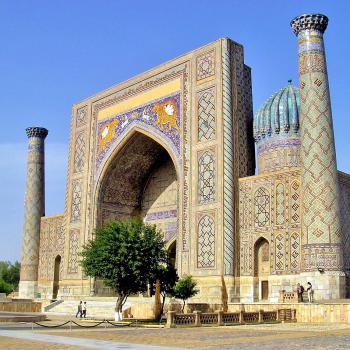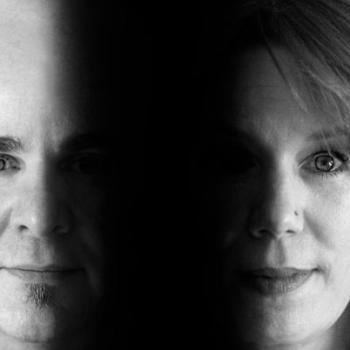Eric Metaxas penned one of the most celebrated books of 2009, a gripping biography of German pastor Dietrich Bonheoffer. It's a must-read for pastors and Christian leaders, with life lessons spilling out of the pages that tell of Bonheoffer's rich and courageous life.
Metaxas is also the other of several other books, most notably a widely acclaimed biography of William Wilberforce. His writing and career are eclectic—having written for Chuck Colson, Veggie Tales, as well as The New York Times, First Things, and Christianity Today. He is also a noted humorist, the author of several children's books, and the founder of the Socrates in the City lectures. His media appearances include CNN and NPR.
I am grateful Eric took time to chat with me for the latest Friday Five.
First William Wilberforce, then Bonhoeffer. What draws you to counter-cultural, Christian reformers? Do you see a common theme in the two men's lives?
Many people in history have accomplished great things, but with most of them, when you dig a little deeper you see significant flaws that mitigate their greatness. With Wilberforce and Bonhoeffer, I saw the opposite. The deeper I dug, the more impressed I was. Their Christian faith was so authentic that they were humble and self-critical. When we encounter this all-too-rare level of faith, we cannot help but be inspired and moved. At least I was.
I was also impressed that their Christian faith led them to courageous action: Wilberforce on behalf of the enslaved Africans, and Bonhoeffer on behalf of the persecuted Jews of Europe. These men were the real thing, and they gave themselves over to serving God for the sake of others.
Bonhoeffer is meticulously researched. How long does it take you to write and research a book like this?
I can never answer this question because I don't know the answer myself. In both cases I first read all that I could get my hands on, to use the cliché. That took about a year or so. And then at some point the starter's pistol went off -- bang! -- and I dove into the writing. The writing process with both books was agonizing and painfully intense. I felt like I was sprinting a fifty-yard dash, chased by a hungry lion, who at the end of the fifty yards was still hungry and continued to chase me at the same speed for miles and miles. I thought my heart would burst, but I realized that if I slowed down the lion would get me, so I kept running as fast as I could and prayed my heart wouldn't burst. Writing both books pushed me to the uttermost limit of what I was capable and I'm not inclined to repeat anything along these lines ever again. I mean that. I'm not sure why I wrote them this way, with this white-hot intensity, but I do know that I'm glad it's over and I don't want to repeat it.
You provide great background and insight into the state of the German Church prior to the rise of Hitler. Is it too simple to say that perhaps the German Church had been so melded with patriotic pride that it forgot biblical Christianity?
Not at all. It's painfully obvious to us, but at the time it was not at all obvious. But Bonhoeffer saw it. He had a perspective that very few others had at the time. He had been to America, of course, where he had experienced the separation of Church and State, and he had seen true Christianity in many forms outside of Germany. So he had a healthy, ecumenical view of Christian faith and saw clearly that true Christianity was not bounded along nationalistic lines.
There is in the center of Berlin today the ruin of a once-great church, the Kaiser Wilhelm Memorial Church, and inside it you can still see the great artistic mosaics of the Kaiser and his family, right alongside images of Jesus. Any bright and sensitive soul will cringe to see it: the Church and State side by side like that, as though they were equals. It's pretty ghastly. Bonhoeffer preached in that church and I'm sure he was sensitive to the blasphemous side of all of this. In my book I write about how he preached in this church on Reformation Day in 1932, just before the Nazis took over. It's chilling and should be a warning to Christians everywhere never to let one's love for one's country compete with or get confused with one's love for God.
Critics have said that you paint Bonhoeffer as "too evangelical." I thought that you portrayed the whole of Bonhoeffer's theology, even quoting lengthy excerpts from his books. How do you respond to this criticism?
I find the criticism hilarious on the one hand and tragic on the other. Bonhoeffer and any other serious Christian is less concerned with being an "evangelical"—whatever that really means—than with being a Christian, a devoted disciple of Jesus Christ. One thing I have said over and over: I never set out to paint any portrait of Bonhoeffer other than what I saw, for good or for ill. That some seem to think that I have put some English on the ball seems to say more about their expectations than about the reality of his life.





